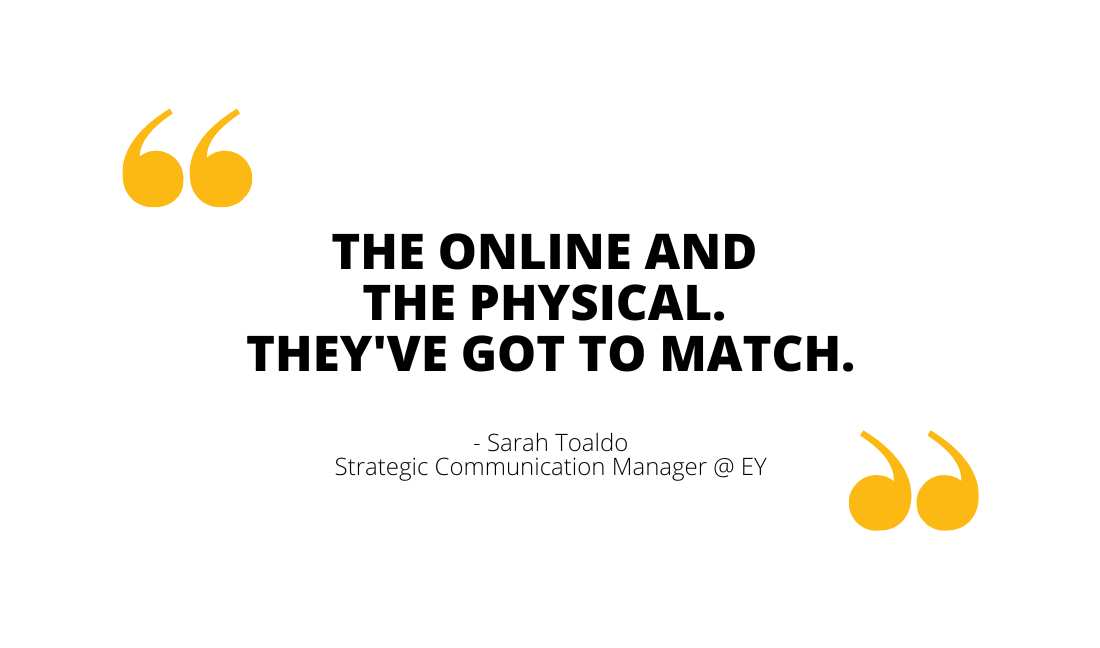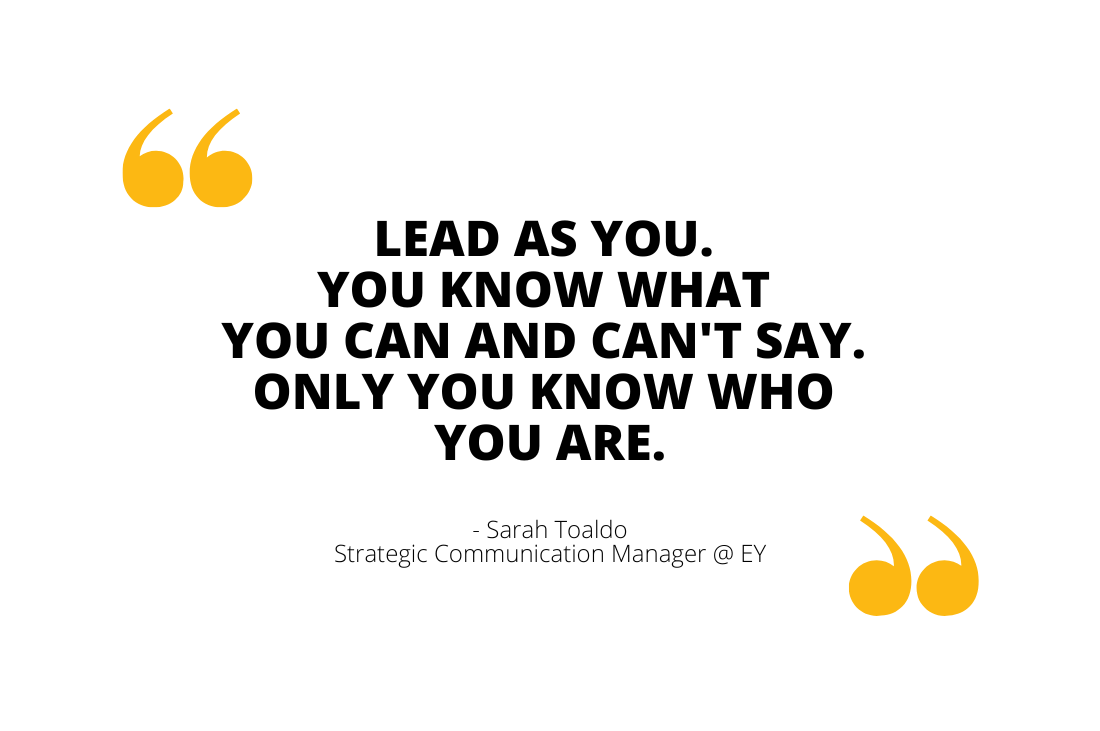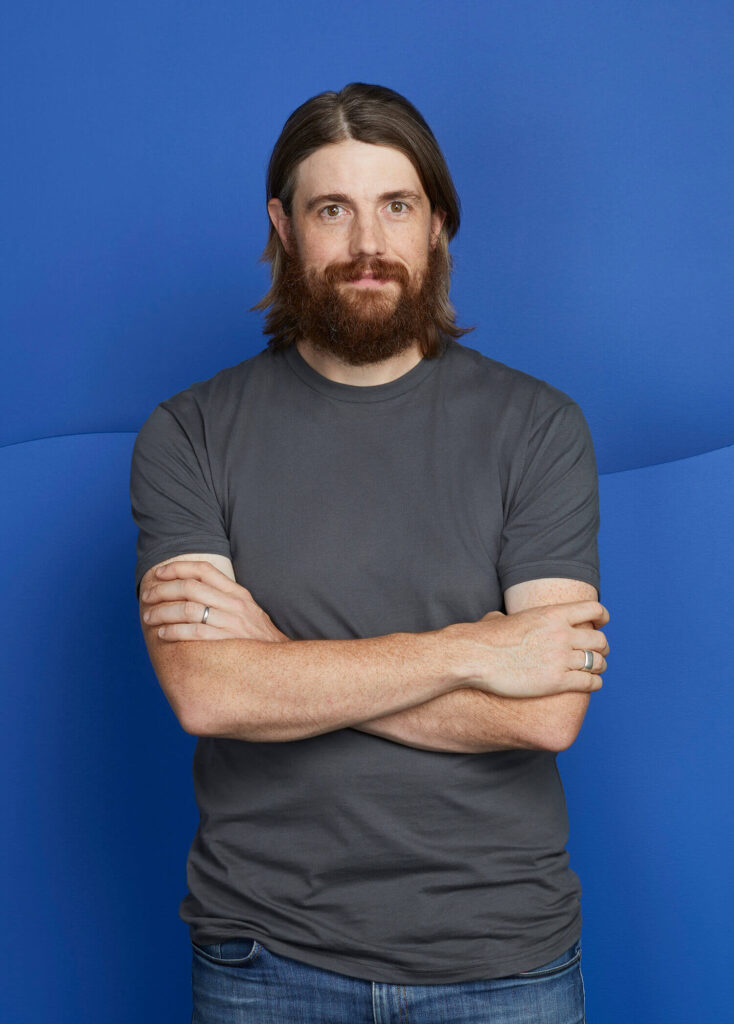In this episode, we look at the question: does social media participation reinforce authentic leadership? One of the common criticisms that I hear around the things that leaders post online is that it appears so manufactured or scripted. I think there’s a perception that digital participation actually makes it easier for leaders to mask authenticity and have others do the work for them. But is that really the case?
So what does authentic leadership look like in the digital age of fake news and disinformation? Does social media participation make leaders more or less transparent? Does the way we expect leaders to be and behave online differ from offline and are there any differences in expectations between female and male leaders when it comes to having an authentic voice online?

To help answer these questions, I had a great chat with Sarah Toaldo, strategic communication manager at EY and a board member of the IABC Canberra Chapter.
Someone who’s had more than 30 years of experience in visual storytelling, connecting and leading teams through change. Someone who has spent more time than most exploring adaptive leadership and also the gender divide in that context through her master communication. Having worn many hats across broadcast media, corporate communication and across both public and private sectors, Sarah brings a breadth and depth of experience to this discussion, which is both unique and informed.
Here’s a snapshot from our discussion. I hope you find it as valuable and insightful as I did.

A quick snapshot. The insights + advice.
Roger Christie: Authenticity is a really interesting and relevant topic I feel for people right. So Sarah, in your view, does digital participation reinforce authentic leadership?
Sarah Toaldo: It absolutely does reinforce that authenticity. Recently I experienced a great example of this in action. I was looking for someone to come join the team and they spoke to me online first to see if they wanted to come and work for us, to see what my leadership style was, what my values were, and if they aligned with it.
You just don’t know who’s looking and you don’t know when they’re looking. The online and the physical. They’ve got to match. If you get that if you get a mismatch, you get that cognitive dissonance. You can always tell a mile away if your online communication is prepared by someone ghosting your thoughts. You can tell when it’s been taken from a media release and not the true authentic person speaking.
So my advice has always been to lead as you – you know what you can and can’t say. Only you know who you are. You’ve got to really do those posts on your digital online presence. Let the company’s digital voice be that of the media release, that more polished tone that you would expect from the brand. And then allow there to be a difference between the brand voice and the leader.

Roger Christie: It’s a really important point. We can find ourselves adopting the language and the digital mannerisms of institutions, when that’s not who we are. We talk differently. We have a dialogue differently. Digital platforms provide a wonderful opportunity for leaders to connect at a different and deeper level than any brand possibly could.
The bigger question here is around what authentic leadership actually looks like online. What does it look like in the digital age? In a sense, as you’ve just described, what are your thoughts on having different identities, or variations of the same identity, based on the channel you’re using and the audience you’re talking to?
Sarah Toaldo: If we go back to what authentic leadership as being true to yourself – to your values, experience, your skills. You can show different values, different facets of your true self to your peers, to your team, to your superiors. I can be authentic to a senior person, but I’ll be a different sort of authenticity to my team. But my underlying values will always be the same of courage, collaboration, trust. They will always be there, they’ll just be exhibited in different ways.
Roger Christie: What I’m hearing is what it’s not is literally a carbon copy of yourself across these different channels. Because while, as you say, they’re connected to the same core, you respect each environment for its unique attributes and its unique conversations and participate in that environment in a way that is appropriate – rather than copy pasting across different channels.
Sarah Toaldo: Absolutely. We’re not like that in real life. So why would we be like that in the digital world?
—
Roger Christie: We talk with our clients quite a bit around the question: what if my views change? and am I going to be held to account for comments that I made earlier? I think what’s really important for people to recognise is that it’s not that we cannot change our views. It’s not that our views cannot mature or deepen.

I think a really good example of that is looking at the evolution or the journey of Mike Cannon-Brooks, CEO at Atlassian. When looking at his journey he has progressively fallen into this idea of renewables and climate change. Because of passion, and that becoming almost core to who he is and his identity today as a business leader, that journey has been laid out very publicly.
What’s important about that, and this is the way that I would encourage other leaders to think about it is, if you only turn up at key moments or turn up to make a statement and then a couple of years later you turn up to make another, there’s no consistency in what you’re doing.
The risk that you run as if your views have changed in that time, people will ask questions. The gap you’ve left allows people to ask questions and that’s where conjecture and distrust comes in. If you’re consistent and you’re showing an evolution of your views online, that paper trail is very powerful.
And the thing I would add to that is network. Surrounded yourself with people who will back you up – because of your digital engagement, your digital participation.
If you’re surrounded by those people, when you get to that point where your views have changed quite dramatically from where you were people then go: I can see the journey this person has been on and I can see that they’re surrounded by credible individuals who do share that view and if this person was a joke, and they wouldn’t be connected with these people and so on.
We want to see that journey. What are your thoughts on this one?
Sarah Toaldo: I absolutely agree. This is why as a leader you need to be authentic. You need to share with your audience, your peers the journey that you’re going on as a person – where you’ve come from, why you’ve changed.
We’ll all go through critical life experiences that change us and if we take people on that journey with us, they can understand how we’ve come out the other side. You’ve got to have those digital breadcrumbs and be really active all the time, rather than just at a key moments, so people know who you are and what you stand for. That’s critical.
Authentic leadership. Final takeaway.
Roger Christie: I’m really hopeful that our listeners are taking something away today that really resonates with them because there’s so much around that idea of consistency – making sure you’re living your values at every moment, even if that is in different forms on different channels.
It’s crucial to remember the need to know your audience as much as your channel. And I think the thing that wraps that all up is this idea of being willing to adapt – not having to turn up as a cardboard copy of yourself across every online platform but instead, being willing to adjust to the situation, the environment and to change your mind as a leader. That can be very powerful and I would argue empowering for others.
To listen in full, head to Apple Podcasts, Spotify or wherever you get your podcasts.
Please subscribe, leave a review or drop Roger Christie a note with any thoughts from this conversation – we’d love to hear from you.